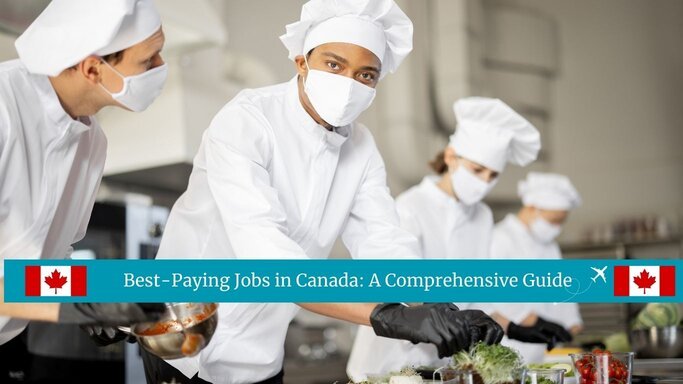Cooking Jobs in Canada: A Guide to the Wonderful Career Opportunities
If you are passionate about cooking, Canada could be the perfect place for you to thrive in your career. The culinary industry in Canada is booming, and there are plenty of opportunities for aspiring chefs, line cooks, pastry chefs, and other food industry professionals.
In this article, we will discuss cooking jobs in Canada, explore different careers in the culinary field, and offer tips on how to start your career in the food industry.
The Current Job Market
According to the latest data from Statistics Canada, the food service and accommodation industry is one of the top employers in Canada. In 2019, the accommodation and food services sector employed over 1.2 million people, representing more than 6% of the Canadian workforce.
The industry has also been growing over the years, with employment increasing by 2.5% between 2018 and 2019.
The COVID-19 pandemic has affected the food service industry, with some restaurants shutting down or reducing their operations.
However, many establishments are still operating, and the industry is expected to bounce back as the economy recovers. With Canada’s diverse population, there will always be a demand for good food and talented chefs and food professionals.
Types of Cooking Jobs in Canada
The culinary industry encompasses many different job vacancies in Canada, from restaurant chefs to food scientists and caterers to nutritionists. Here are some of the careers you could consider in the food industry:
Restaurant Chef
As a restaurant chef, you will be responsible for planning and executing menus, managing the kitchen, supervising staff, and ensuring the quality of dishes. You may work in upscale, fine-dining restaurants, hotels, or fast-food chains.
The salary for a restaurant chef can range from $45,000 to $100,000, depending on your experience and the establishment.
Line Cook
A line cook works under the supervision of the head chef and prepares dishes according to the menu. You need to have good knife skills, be able to multitask and work in a fast-paced environment. The salary for a line cook can range from $30,000 to $50,000, depending on your experience and the restaurant.
Pastry Chef
If you have a passion for dessert and baking, you could consider a career as a pastry chef. As a pastry chef, you will be responsible for creating desserts, pastries, and creamy confections. You can work in bakeries, hotels, or restaurants. The salary for a pastry chef can range from $35,000 to $70,000, depending on your experience and the establishment.
Food Scientist
If you are more interested in the science behind food, you could consider becoming a food scientist. As a food scientist, you will work in food manufacturing, research and development, or quality control. The salary for a food scientist can range from $45,000 to $90,000, depending on your experience and the company.
Nutritionist
If you are passionate about healthy eating and diet, you could become a nutritionist. As a nutritionist, you will work with individuals, schools, hospitals, or companies to promote nutrition and healthy eating habits. The salary for a nutritionist can range from $40,000 to $80,000, depending on your experience and the company.
How to Start a Cooking Career in Canada
If you want to start a career in cooking, you need to have a passion for food and a willingness to learn and work hard. Here are some tips on how to start your cooking career in Canada:
1. Get Training and Education
To become a chef or any other food professional, you need to have some training and education. You can start by enrolling in a culinary school or taking cooking classes online or in-person. You can also gain experience by working in a kitchen or as an apprentice under a chef.
2. Build Your Skills and Knowledge
As a chef or food professional, you need to have excellent knife skills, be able to multitask, and have good time management. You also need to have knowledge of different cuisines, cooking techniques, food safety, and nutrition.
3. Gain Experience
Experience is essential in the culinary industry. You can gain experience by working in a restaurant, testing out recipes, cooking for your family and friends, or working in a catering business.
4. Network
Networking is critical in any industry, and the culinary industry is no exception. Attend culinary events, connect with fellow chefs and food professionals, and seek mentorship from experienced chefs.
Conclusion
With Canada’s diverse population and growing economy, the culinary industry offers many opportunities for aspiring chefs and food professionals.
Whether you aspire to become a restaurant chef, line cook, pastry chef, food scientist, or nutritionist, you can build a successful career in the culinary industry with hard work, passion, and dedication.

